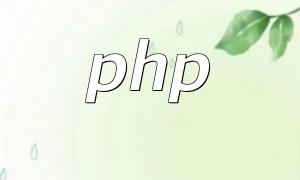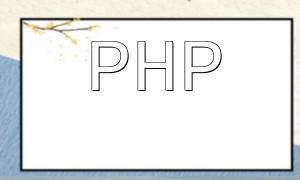Introduction
In today's increasingly complex web environment, ensuring the security of web applications is critical. PHP frameworks offer developers a solid foundation to build applications that are both secure and efficient. By following a set of security and compliance best practices, potential risks can be minimized, protecting user data and maintaining system stability.
Security Best Practices
- Use secure password techniques: Employ strong encryption algorithms such as bcrypt or PBKDF2 to safely store user passwords and prevent leaks.
- Prevent Cross-Site Scripting (XSS): Strictly validate and escape user inputs to avoid malicious script injection.
- Prevent SQL Injection: Use prepared statements and parameterized queries to block attackers from manipulating databases with malicious SQL.
- Implement Cross-Site Request Forgery (CSRF) protection: Use CSRF tokens or double-submit techniques to ensure the legitimacy of requests and prevent forged submissions.
- Regularly update applications and dependencies: Timely patch framework and library vulnerabilities to maintain system security and stability.
Compliance Requirements
- Secure Sockets Layer (SSL): Enable HTTPS site-wide to protect data confidentiality and integrity during transmission.
- Payment Card Industry Data Security Standard (PCI DSS): Strictly comply with standards when handling payment card information to ensure payment security.
- Health Insurance Portability and Accountability Act (HIPAA): Follow privacy and security requirements when managing medical data.
- General Data Protection Regulation (GDPR): Ensure data privacy compliance for users in the European Union.
Practical Example
The following example demonstrates how to use Laravel's Eloquent query builder to write secure database queries that prevent SQL injection:
$users = User::where('email_verified_at', '!=', null)
->where('age', '>', 18)
->orderBy('name', 'asc')
->get();
This query filters users who have verified emails and are older than 18, ordering them by name ascending. By leveraging Eloquent's prepared statement mechanism, it avoids the risks of directly concatenating SQL statements, effectively preventing SQL injection attacks.
Conclusion
Adhering to the security strategies and compliance requirements outlined here significantly enhances the security posture of PHP framework applications. Developers should stay informed about security developments and regularly review and update their systems to ensure robustness against evolving threats.










